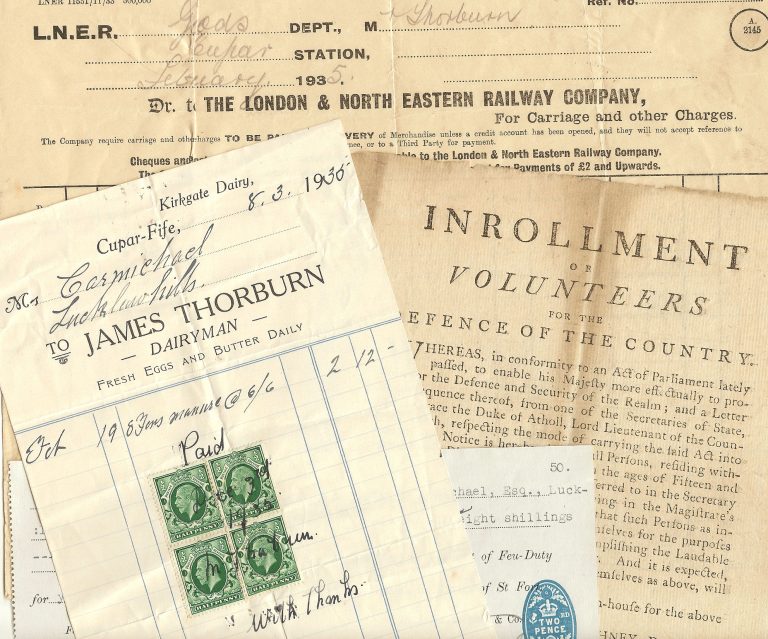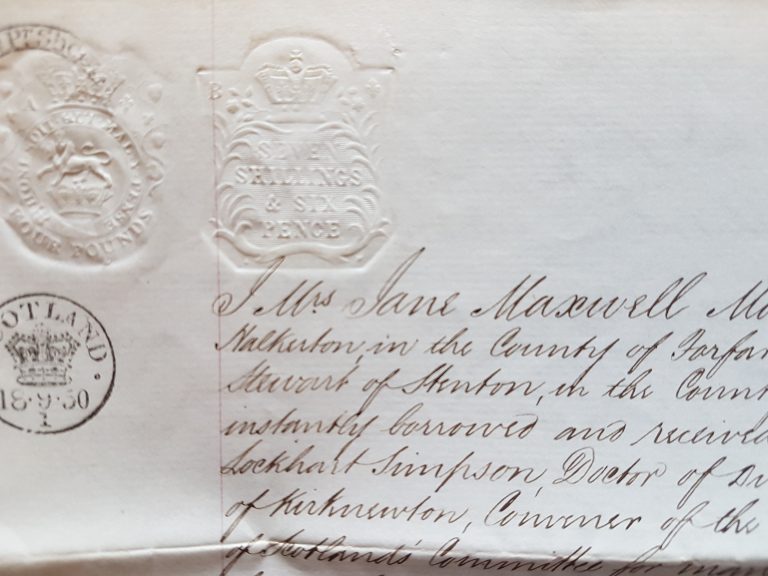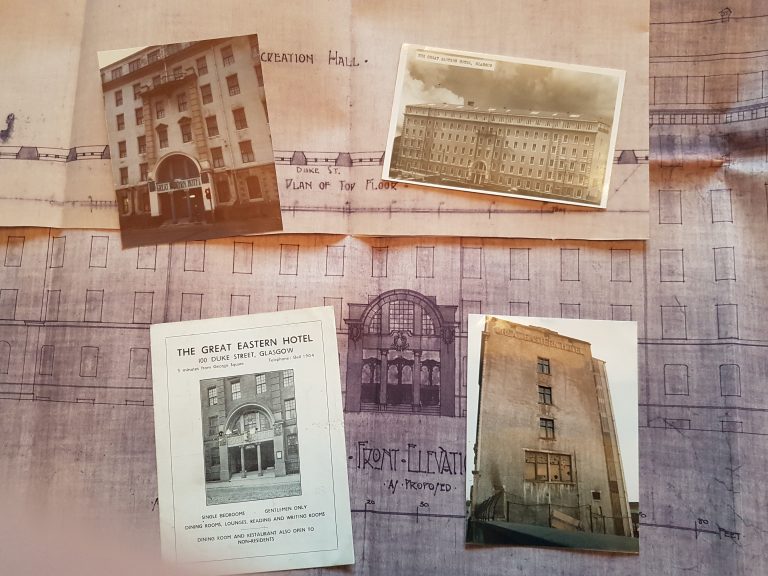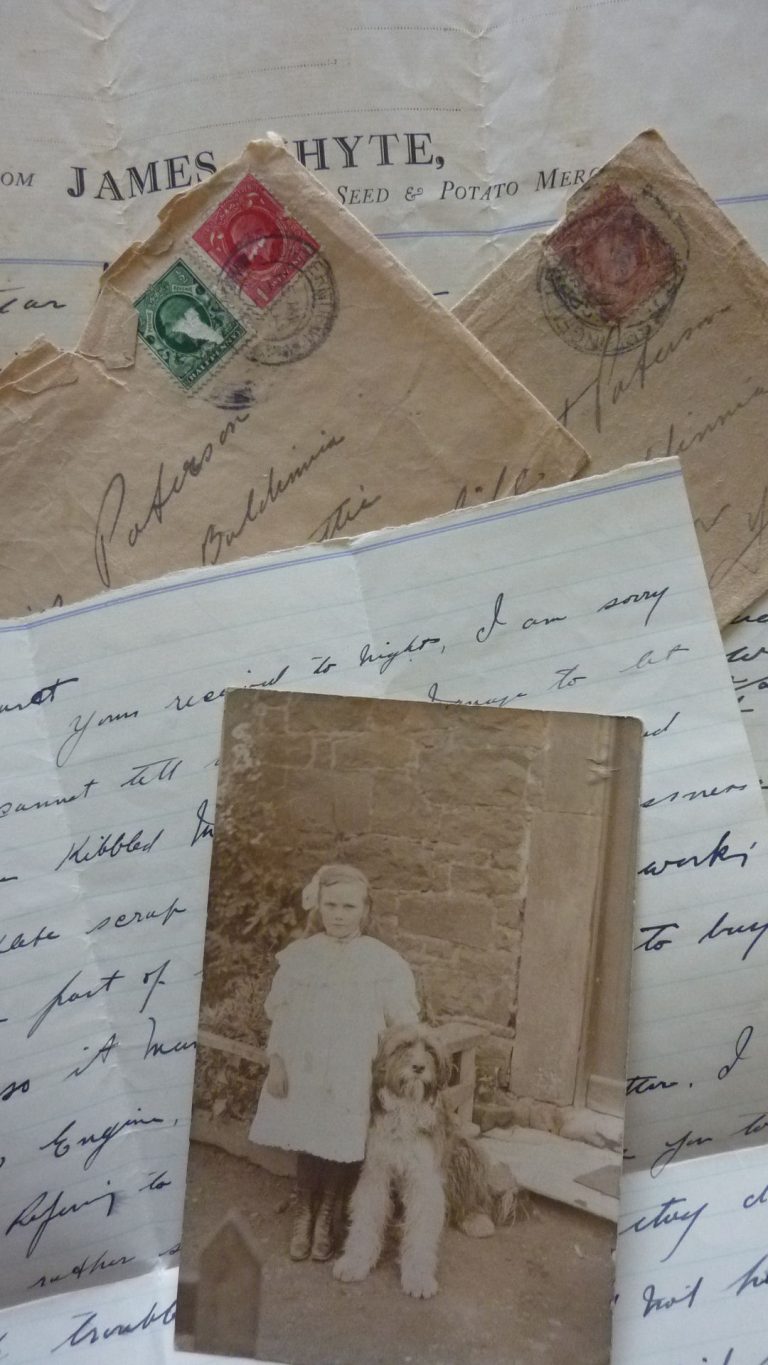An initial 30 minute consultation by telephone, video call or email will establish what you want to achieve and provide an estimate of the time required.
If you need help with a “brick wall” the approach will be to review and validate the information you have already discovered and identify how to move your research to the next stage.
In most cases a flexible staged approach will be suggested giving you control of the budget and timescale and the option to agree a change in direction or focus depending on what is uncovered at each stage.
It is helpful and avoids duplication of work already completed if you can provide as much initial information as possible.
This might include documents or information already found at Scotland’s People or in archives, family documents, family bibles, war medals, photographs, newspaper cuttings or any other heirlooms that might provide some clues.
However, in most cases research can be undertaken with the very minimum of information so a lack of detail need not be a barrier.
With the aims identified an initial search will be made to assess the viability of the project. You can be assured of an honest approach if at the outset it is apparent that success is unlikely, then we can discuss the options and what research can realistically achieve.
A written budgeted proposal detailing what has been discussed, with an outline research plan and a summary of the steps to achieve your aim will be provided before any research begins.
Do you want to discover who your Scottish ancestors were, where they lived and what they did?
Your Scots Past offers professional research into your Scottish ancestry covering all of Scotland but specialising in Angus (Forfarshire), Dundee and Perthshire. Offering experienced and qualified research in a thorough and cost-effective manner.
If you have hit a brick wall a fresh look at the problem with the knowledge and understanding of a diverse range of available records can re-energise and help progress your research.
Existing research can be reviewed and validated and with some new lateral thinking fresh directions for investigation can be suggested.
Scots have for centuries moved between parishes, counties and countries so although your story begins in Scotland, research can continue in the rest of the United Kingdom and beyond. As part of a world-wide network of genealogists using their expertise and access to local archives provides you with a cost-effective solution to the research in any location.
The research plan will be developed together and the pace, direction and how the final research is presented designed to suit your requirements.
Since 1855 all births, marriages and deaths have been recorded giving fuller details of names, places and dates. Earlier records vary and survival rates will depend on which parish your ancestors lived in. Fortunately, there are other sources which can be consulted including burial records, Kirk session records, non-conformist records, registers of deeds, registers of sasines, wills, valuation rolls, newspapers, and other archival materials.
In this research into Jane Rennie’s Blog, Salvation Army records were used to uncover the story behind a death entry.

Perhaps you live a distance from the Scottish records or struggle to read the handwriting?
Records can be sourced and accessed in local archives, local history centres and at national centres including the National Records of Scotland and National Library of Scotland in Edinburgh. In addition to reproducing or transcribing these documents an explanation of the information in the record e.g., Scots words, place names, dates and abbreviations and when or why the records were created can be provided.

Do you live in or have a connection to a house or building and would like to know more about its history and who lived or worked there?
This research will combine the story of the land and architectural or structural development with the stories of the people who lived and worked there. People who own or live in a property change the building and land – from the choice of fittings and outbuildings to the design of a garden. Equally every building has been influenced by the social and economic factors throughout its history and by the surrounding infrastructure and climate moulding the geographic landscape.
Using a range of resources including land records, maps, census returns, newspapers, local historical material and other relevant public records the history will be pieced together.
The research can be presented in a variety of ways depending on the purpose of the commission and will be illustrated with historical documentation, photographs, drawings, plans and maps.

Did your ancestor own their own business or work as a tradesman? Are you part of a well-established family business and want to reclaim your history?
A business history can be a powerful way to understand the working life of your ancestor or the story of a building. Exploring the origins and development of a business through formal business records, newspapers and public records can add another layer to your existing research.
The survival of formal records can be patchy but with some lateral thinking can identify alternate sources rich in context and detail. See here, Barry’s Linoleum Company’s Works magazine provided biographical details on an individual employee.
Many businesses hold informal archives, collections of documents, images and editorials which, when collated and presented as a chronological timeline can provide a rich source of material for marketing and promotional purposes. Documenting the history of a family business can also help you articulate to your clients and suppliers your resilience and longevity as an organisation.
Every project will be different, shaped by the aims and influenced by the information available.
When researching a family, the places they lived and worked, the environment around them, local, national and world events and the social and economic elements that shaped their lives and decisions are part of the individual and family’s story.
Equally when researching a business or building the people who lived and worked there, and the geographic and socio-economic factors have shaped the business or building’s history.
The research will create a timeline and/or genealogy then set this within the wrap around social and economic context to take the research beyond the names, dates and places and add the story of the people and places.
You can choose to have regular updates and of course, if any unexpected information is uncovered you will be advised giving you the opportunity to change the direction of research or to focus on a specific area or theme.
The research will usually be presented in a detailed report with a full explanation of what the records have revealed. Rather than use computer generated information each report will be individually written and where appropriate to the commission illustrated with maps and historical documents.

Customised research at a fixed hourly rate, within an agreed budget that can be reviewed as the research progresses. The hourly rate will depend on the service requested and will cover research, report writing and communication.
Payment can be made by bank transfer or by credit/debit card via PayPal. The balance must be received as cleared funds before the final report is provided.
Please click here to read our full Terms and Conditions*
If you have any questions or would like further details, please contact me to discuss your requirements.
A deposit is payable before the commencement of work.
Most families can be traced back to at least the 1800s and many back further, where a connection can be made to well-documented families with proven pedigrees much earlier.
There are a number of factors that will determine success.
Where your ancestors lived, for example, the parish of Errol in Perthshire has some of the earliest surviving Scottish baptismal registers dating back to 1553. Other parishes have less continuous coverage due to missing or damaged registers, less conscientious scribes and disasters such as the sinking of the boat carrying some of the 1841 Fife census returns.
If your ancestor’s name is very common then it may become more challenging to confirm the correct ancestors the further back the research goes. This is particularly true if there are a number of related families living in close proximity with shared family names.
Details will vary depending on the type of research, the period, and the locations.
All research will include a transcription of the information found in the resources consulted. The findings will be explained and if applicable additional socio-economic information included.
If research has been inconclusive the report will discuss the possibilities and may suggest any further steps that can be taken to resolve the uncertainty. All research will have full references confirming where the information has come from and which sources have been consulted.
As there is no absolute guarantee of results the viability of any project will be assessed before commencing the research and an honest appraisal made so you can decide if you want to proceed. If during the project, it becomes apparent that a line of research has reached a point where there is not sufficient evidence to continue then we can discuss other options for research. When you commission research you are paying for the process and the expertise in understanding not only the records found but why there may be gaps.
Although it may not be what you had hoped for, a missing record or piece of information can add to the overall story. For example, an absence of an entry in the Church of Scotland records may indicate that your ancestor followed a non-conformist style of worship and lead to a new line of enquiry. Understanding what records exist/survive, what other sources to consider if no information is found and a wider understanding of the social and religious events of the time period can often help demolish long-standing brick walls”.
Copyright © 2023. All rights reserved.